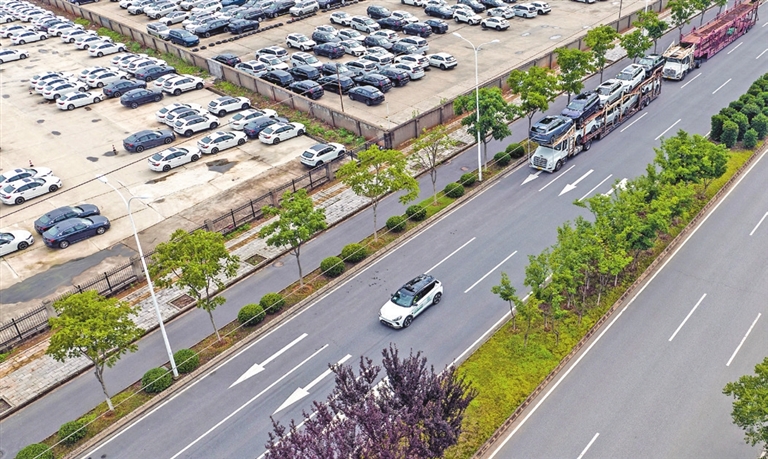
CHINA is developing a future intelligent road network, in which pilot cities will upload car and road sensor data to the cloud for analysis. With the ability to better support smart driving, the plan will likely cost about 2.7 trillion yuan (USS376 billion) to upgrade road infrastructure, yicai.com quoted industry insiders as saying. The Ministry of Industry and Information Technology announced a vehicle-road-cloud integration plan in January, and early last month it named 20 cities including Beijing, Shanghai, Shenzhen and Guangzhou as the first pilot cities, indicating the country’s determination to push the development of intelligent connected vehicles (ICVs). “The nation will first have 20 pilot cities for vehicle-road-cloud integrated ICVs, and then connect these key cities via 30 smart highways,” Lyu Bin, vice president of self-driving services provider Mogo.ai, told Yicai in an interview. “The country will initially achieve smart transportation 1.0 in 2026.” In the longer term, China aims to equip its more than 5.4 million kilometers of roads with smart devices to coordinate with cloud control platforms and communications systems. Installing the necessary smart hardware on roads will cost 1 million yuan to 2 million yuan per kilometer, according to an industry insider. “This means the same sensors on the smart vehicles need to be fitted on the roads for the data transmission and integration to be possible,” the person said. Even if the costs were to fall to 500,000 yuan per kilometer in the future, it would still cost 2.7 trillion yuan to equip all roads with smart devices, which is similar to the investment that went into the high-speed railroad network, the person noted. Google first set up its self driving division back in 2009, yet after 15 years, full self driving is still being trialed on a small scale. The companies in this sector are scrambling to find a sound business model to turn profits. Even Elon Musk, founder and CEO of the industry leader Tesla, acknowledged the bottlenecks his company faces at its shareholder meeting this June. While automakers and self-driving solution providers each work on their own products and systems, Lyu said, the road can become unchartered territory that is difficult to navigate, with smart cars of different brands running on different systems driving alongside those helmed by humans. An once-and-for-all solution could be a smart road that coordinate all the cars running on it, using a uniform data analysis center. The United States previously had similar plans, but shelved them, partly because the U.S. lacks mature technologies in this area and building the needed infrastructure poses a huge challenge, Lyu noted.(SD News) | 
